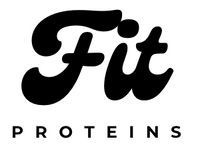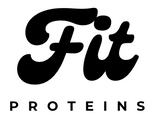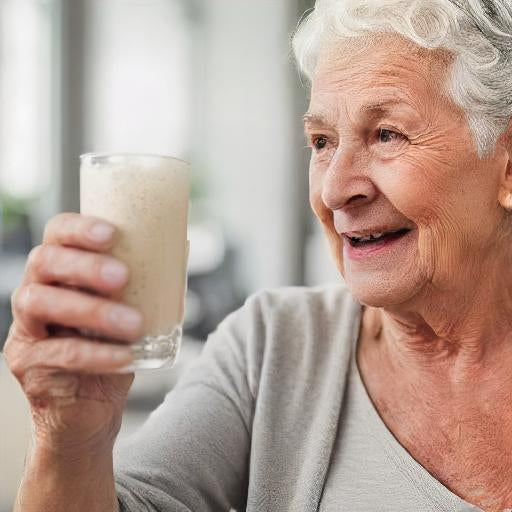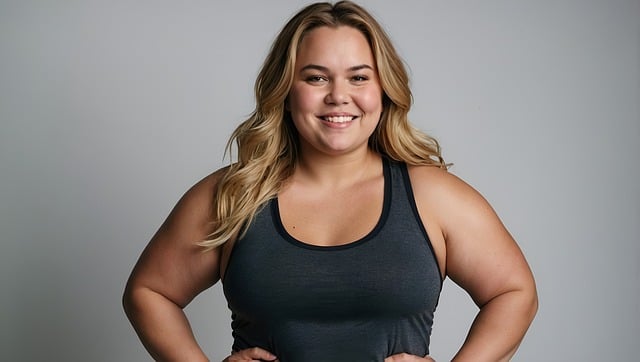Protein for Seniors: Essential Nutrients for Older Adults

As we age, our bodies undergo various changes that require us to pay closer attention to our nutritional needs. Among the most critical nutrients for older adults is protein, a vital component that supports muscle health, immune function, and overall well-being. In this article, we'll explore the importance of protein for seniors and how they can ensure they are getting enough to maintain a healthy, active lifestyle.
Why Protein is Crucial for Seniors
Protein plays a key role in maintaining muscle mass, which naturally declines as we age. This decline can lead to sarcopenia, a condition characterized by the loss of muscle strength and function, making daily activities more challenging. Adequate protein intake helps slow down this process, promoting muscle repair and growth, which is essential for maintaining mobility and independence in older adults.
Additionally, protein is important for:
- Immune Function: Protein helps the body produce antibodies and repair tissues, which is vital for a strong immune system.
- Bone Health: Protein supports bone density, reducing the risk of fractures and osteoporosis.
- Weight Management: Protein can help manage weight by increasing satiety and supporting a healthy metabolism.
How Much Protein Do Seniors Need?
The protein needs of seniors may vary based on their health status, activity level, and overall dietary habits. However, general recommendations suggest that older adults should aim for at least 1.0 to 1.2 grams of protein per kilogram of body weight per day. For example, a senior weighing 70 kg (about 154 pounds) should consume between 70 to 84 grams of protein daily.
Best Sources of Protein for Seniors
It's essential for seniors to include a variety of high-quality protein sources in their diet to ensure they are getting all the essential amino acids needed for optimal health. Some excellent protein sources include:
- Lean Meats and Poultry: Chicken, turkey, and lean cuts of beef or pork are rich in protein and provide essential vitamins and minerals.
- Fish and Seafood: Fatty fish like salmon, mackerel, and sardines are not only high in protein but also provide omega-3 fatty acids, which are beneficial for heart health.
- Eggs: Eggs are a versatile and easily digestible source of protein, perfect for any meal of the day.
- Dairy Products: Milk, yogurt, and cheese are excellent sources of protein and calcium, which is crucial for bone health.
- Plant-Based Proteins: Beans, lentils, tofu, and quinoa are great options for those who prefer plant-based diets or need to avoid animal products.
Incorporating Protein into Daily Meals
To ensure adequate protein intake, seniors should aim to include protein in every meal. Here are some practical tips:
- Breakfast: Start the day with eggs, Greek yogurt, or a protein smoothie.
- Lunch: Include lean protein sources like chicken, turkey, or tofu in salads or sandwiches.
- Dinner: Opt for a serving of fish, lean meat, or a hearty bean stew.
- Snacks: Enjoy a handful of nuts, a boiled egg, or cottage cheese for a protein-packed snack.
The Role of Protein Supplements
For some seniors, especially those with reduced appetite or difficulty chewing, meeting daily protein requirements through food alone may be challenging. In such cases, protein supplements can be a convenient way to boost intake. Options like protein powders, shakes, and bars can be easily incorporated into the diet. However, it's essential to choose supplements that are low in sugar and additives, and it's advisable to consult with a healthcare provider before starting any new supplement.
Conclusion
Ensuring adequate protein intake is vital for seniors to maintain muscle mass, support immune function, and promote overall health. By incorporating a variety of protein-rich foods into their diet and considering supplements when necessary, older adults can enhance their quality of life and stay active and independent for longer.




